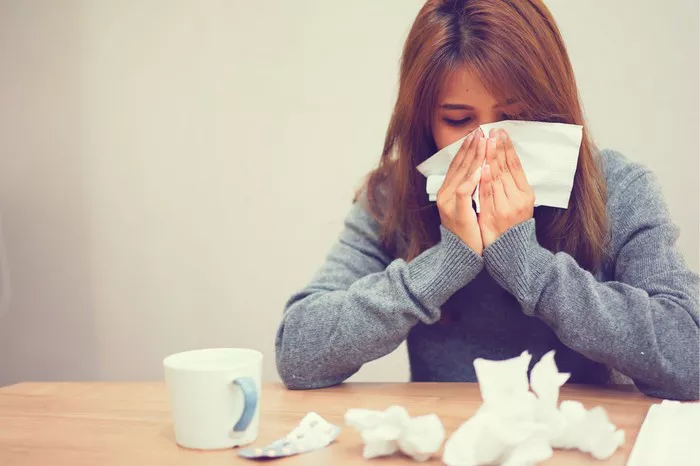Allergies are a common condition that affects millions of people worldwide. While allergies can develop at any age, many people wonder if allergies get worse as they get older. In this article, we will explore the relationship between age and allergies, and discuss how aging can impact allergy symptoms.
What are Allergies?
Allergies occur when the immune system overreacts to a substance that is normally harmless, such as pollen, dust, or certain foods. When the immune system encounters an allergen, it produces an antibody called immunoglobulin E (IgE), which triggers the release of histamine and other chemicals. These chemicals cause the symptoms of an allergic reaction, such as itching, swelling, and inflammation.
Common types of allergies include:
Seasonal allergies (also known as hay fever), which are triggered by pollen from trees, grasses, and weeds.
Indoor allergies, which are triggered by dust mites, pet dander, and mold.
Food allergies, which are triggered by certain foods, such as peanuts, shellfish, and eggs.
Do Allergies Get Worse with Age?
While allergies can develop at any age, research suggests that they may get worse as people get older. One study found that the prevalence of allergies increases with age, with nearly 50% of adults over the age of 65 reporting allergy symptoms.
There are several reasons why allergies may get worse with age. One theory is that the immune system becomes less efficient as people get older, which can lead to an increase in allergic reactions. Another theory is that people are exposed to more allergens as they age, which can trigger more allergic reactions.
In addition, some people may develop new allergies as they get older. This is because the immune system can become sensitized to new allergens over time, especially if a person is exposed to them frequently.
How Aging Impacts Allergy Symptoms
Aging can impact allergy symptoms in several ways. For example:
Allergy symptoms may become more severe: As the immune system becomes less efficient, it may produce a stronger reaction to allergens, leading to more severe symptoms.
Allergy symptoms may last longer: Aging can also impact the body’s ability to clear allergens from the system, which can lead to longer-lasting symptoms.
Allergy symptoms may be mistaken for other conditions: As people age, they may develop other conditions that can mimic allergy symptoms, such as chronic obstructive pulmonary disease (COPD) or heart disease. This can make it more difficult to diagnose and treat allergies.
Managing Allergies in Older Adults
If you are an older adult with allergies, there are several steps you can take to manage your symptoms:
Identify your triggers: Work with your doctor to identify the allergens that trigger your symptoms. This can help you avoid exposure to these allergens and reduce your symptoms.
Take medications as prescribed: Your doctor may prescribe medications to help manage your allergy symptoms, such as antihistamines, decongestants, or nasal corticosteroids. It is important to take these medications as prescribed to achieve the best results.
Consider immunotherapy: Immunotherapy, also known as allergy shots, can help desensitize the immune system to specific allergens. This can reduce the severity of allergic reactions over time.
Manage other health conditions: If you have other health conditions, such as COPD or heart disease, it is important to manage these conditions as well. This can help reduce the risk of complications and improve your overall health.
Prevention of Allergies in Older Adults
While it is not always possible to prevent allergies, there are several steps you can take to reduce your risk of developing allergies or making your existing allergies worse:
Reduce exposure to allergens: Avoiding exposure to allergens is the best way to prevent allergic reactions. This may involve using air filters, cleaning your home regularly, or avoiding certain foods.
Maintain a healthy lifestyle: Eating a healthy diet, getting regular exercise, and getting enough sleep can help boost your immune system and reduce your risk of developing allergies.
Quit smoking: Smoking can worsen allergy symptoms and increase your risk of developing other respiratory conditions, such as COPD.
Get vaccinated: Certain vaccinations, such as the flu vaccine, can help reduce your risk of respiratory infections that can worsen allergy symptoms.
Conclusion
Allergies can develop at any age, but research suggests that they may get worse as people get older. Aging can impact allergy symptoms in several ways, including making symptoms more severe, longer-lasting, and more difficult to diagnose. If you are an older adult with allergies, it is important to work with your doctor to manage your symptoms and reduce your exposure to allergens. With the right treatment and management strategies, it is possible to live a full and active life with allergies.
[inline_related_posts title=”You Might Be Interested In” title_align=”left” style=”list” number=”6″ align=”none” ids=”4835,5203,5200″ by=”categories” orderby=”rand” order=”DESC” hide_thumb=”no” thumb_right=”no” views=”no” date=”yes” grid_columns=”2″ post_type=”” tax=””]
































